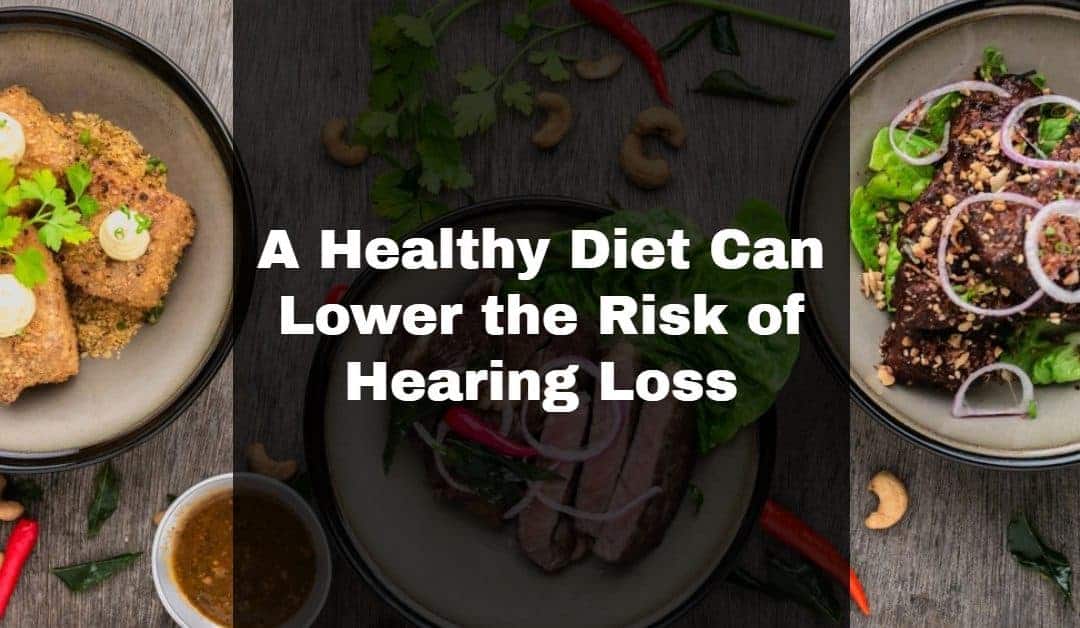Did you know that the food you eat can directly affect your hearing? Most people focus on their diet to manage weight, boost energy, or support heart health. However, science shows that nutrition also plays a crucial role in hearing health; studies reveal that a healthy diet can significantly lower the risk of hearing loss, especially as you age.
By understanding the relationship between diet and hearing, you can make more intelligent choices today to protect your ears tomorrow. Ready to dive in? Let’s explore how food impacts your hearing and learn actionable tips to maintain optimal ear health.
Understanding the Link Between Nutrition and Hearing Loss
The Role of Nutrients in Inner Ear Health
Your inner ear depends on a steady supply of essential nutrients to function correctly. Zinc, magnesium, and folate support hearing by reducing inflammation, promoting nerve health, and improving blood flow. Without these nutrients, your ears may struggle to maintain their delicate balance.
Antioxidants and Their Protective Properties
Free radicals, unstable molecules that damage cells, can harm the sensitive hair cells in your inner ear. Antioxidants such as vitamins C and E fight free radicals, shielding your ears from oxidative stress. Foods like berries, citrus fruits, and nuts provide these protective nutrients.
The Impact of Chronic Inflammation on Hearing
Chronic inflammation can damage the tiny structures in your ear that detect sound. Nutrient-rich foods with anti-inflammatory properties, such as leafy greens and fatty fish, combat this issue. Reducing inflammation promotes better hearing and overall health.
Learn more about antioxidants and hearing health here.
Foods That Support Hearing Health
Omega-3 Fatty Acids
Omega-3 fatty acids improve blood flow to the ear and strengthen the auditory system. Research suggests that people who eat fish high in omega-3s at least twice a week experience a lower risk of age-related hearing loss. Salmon, mackerel, and walnuts are excellent sources.
Vitamin-Rich Foods
Vitamins A, C, D, and E enhance hearing health. Carrots and sweet potatoes supply vitamin A, while oranges and bell peppers are rich in vitamin C. Fortified dairy products deliver vitamin D, and almonds pack a punch of vitamin E.
Whole Grains for Circulation
Whole grains like quinoa, oats, and brown rice support healthy blood circulation. Proper blood flow to the inner ear nourishes the cells responsible for detecting sound. Whole grains also regulate blood pressure, which benefits ear health.
Harmful Eating Habits and Their Effects on Hearing
High-Sugar Diets and Hearing Loss
High blood sugar levels can damage the small blood vessels in your inner ear. This damage limits nutrient and oxygen delivery to auditory cells, increasing your risk of hearing loss. Reducing sugar intake protects these vessels.
Excess Salt and Inner Ear Pressure
Too much salt can lead to fluid retention, which raises inner ear pressure. This imbalance disrupts hearing and can worsen conditions like tinnitus. To reduce salt intake, limit processed snacks and opt for fresh foods.
Processed Foods and Free Radicals
Processed foods contain unhealthy fats and preservatives that increase free radical production. Free radicals attack the sensitive cells in your ear, leading to hearing decline. Replace processed options with whole, nutrient-rich foods.
Simple Tips to Improve Your Diet for Better Hearing
Incorporate Whole, Natural Foods
Whole, natural foods supply the nutrients your ears need to stay healthy. To promote hearing health, add colorful fruits, vegetables, lean proteins, and healthy fats to your meals.
Reduce Processed and Sugary Foods
Swap processed snacks and desserts for fresh produce and natural sweeteners. This simple change reduces inflammation and protects your ears from damage.
Stay Hydrated for Optimal Circulation
Hydration plays a vital role in hearing. Water improves blood flow, helping your inner ear function efficiently. Drink at least eight glasses of water daily to support circulation.
Call to Action
Your diet has a significant impact on your hearing health. By making smarter food choices, you can protect your ears and enjoy better overall well-being. Want to assess your hearing health or get more personalized advice?

